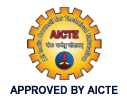"Which branch of engineering is the best "- is often a hot topic amongst students like you planning their next academic step. With so many options to choose from, selecting the one which works for you the best, can indeed be difficult.
While each engineering field has its own perks, mechanical engineering is often the one preferred by most individuals across the country. In fact, a report published on The Times of India states that the proportion of students selecting mechanical engineering has increased.

What is Mechanical Engineering All About?
So, what is this branch all about and why do so many students prefer it? In simple terms, mechanical engineering is a discipline that has adopted the principles of engineering, physics and materials science to design, analyze, manufacture and maintain mechanical systems. From making the Bagger 288 (Excavator 288), the world's largest land vehicle to designing the Nano Engine that works on a single atom, this discipline has made a significant impact in the global industry.
Now that you have a basic understanding of this branch, let's understand why it is so important. Without this type of engineering, we would not have the necessities such as engines, generators, refrigerators, elevators or even air conditioning. Without realizing, we use something that has been mechanically engineered almost daily. Mechanical engineering enables us to do many activities with ease and provides practical technologies to our modern society.
Interested in learning more about the most real branch of engineering? Scroll down to understand:
- What does mechanical engineer do?
- Scope of mechanical engineering
- Qualification to pursue Mechanical engineering
- Payscale
- Degrees and Specialties
- Career Advancement Opportunities
- Is Mechanical Engineering Right for You?
- How to find top Mechanical Engineering Course & College in India
- Mechanical engineering curriculum & syllabus
- Admission process for Mechanical Engineering (respective Geo location)
- Fee structure for Mechanical Engineering
- Why Choose AVIT Engineering College?
Let’s get started.

What does a Mechanical engineer do?
When it comes to the roles and responsibilities, a mechanical engineer can be called as a multi-faceted employee. A few of the prominent responsibilities are:
- Enhancing the performance of mechanical components
- Producing and implementing designs and test procedures
- Testing, evaluating, modifying and re-testing products
- Guiding and offering technical advice to the team
- Maintaining and remodeling equipment to ensure its safety, reliability and efficiency
- Designing industrial processing systems
- Consulting technical personnel to prepare designs or operational plans
Of course, these responsibilities might differ depending on your job profile and the company you are working for. A few of the top job profiles in this engineering stream, you can pursue are:
- Industrial Engineer
- Automotive
- Biotechnologist
- Mechanical Engineering Technician
- Robotic engineer
- Materials Engineer
- Petroleum Engineer
- Aerospace Engineer
- CAD Technician
- Control and instrumentation Engineer
- Maintenance engineer

What is the scope in Mechanical engineering?
As mentioned earlier, students studying in mechanical colleges in India deal with anything and everything that movies; right from the components of a car to the human body. Considerably its ever-growing impact and importance in the industry, the scope is only going to grow by the day.
What helped invent the first steam engine in 1698, a heated factory in 1791, the telephone in 1876 to a diesel train in 1955 and an Aeroboat in 2014, mechanical engineering has left us appalled every century. And, it is still continuing to do so with the rapid growth in technology and automation. Thanks to this, the mechanical engineering job prospects and industry types have evolved as well.
Top industry types for mechanical engineering students include:
- Scientific research and development services
- Computer and electronic product manufacturing
- Architectural, engineering, and related services
- Transportation equipment manufacturing
- Machinery manufacturing
Now, let us understand what does it take to be a mechanical engineer.

What is the required qualification for Mechanical engineering?
To pursue a mechanical engineering course from one of the top colleges in India, you need
to meet the eligibility criteria.
Eligibility Requirements for B.E. Mechanical Engineering:
Students who have completed 10+2 in science stream with physics, chemistry and mathematics subjects from a recognized board can apply for B.E. Mechanical Engineering course. However, these criteria differ from college to college. So ensure you read it on their website before applying.
What is the salary of a Mechanical engineer?
“How much will I earn?” is another favourite question of students across the country. According to Glassdoor, the average base pay for graduates is ₹460,640/yr as of January 2020. This again depends on your knowledge, skills, job profile, location, and company. For example, a fresher Automotive Engineer might earn ₹557,890/yr, whereas an Aerospace Engineer can make ₹6,00,000/yr.

Degrees and Specialties
If you are someone who has just completed their 12th std, you can opt for a four-year bachelor’s program, i.e. B.E. Mechanical Engineering. Whereas after your graduation, you can pursue a two-year master’s degree from renowned universities, followed by a Ph.D. While pursuing your bachelor’s/ master’s program, you can choose from the following specializations:
- Automotive
- Biomechanics Engineering / Biomaterial
- Combustion / IC Engine modelling (Experimental, Computational)
- Controls, Robotics
- Dynamics, Controls & Vibrations
- Energy / Heat & Mass transfer / Thermal Science
- Fluid Mechanics / Computational Fluid Mechanics
- Manufacturing
- Materials / MEMS / NANO - 3D Printing
- Solid Mechanics - Computational mechanics

Career Advancement Opportunities in Mechanical Engineering
To advance in your career, you can specialise in mechatronics, materials science, petroleum
engineering, and others; or even take a leadership role like a principal mechanical engineer.
If you are looking forward to building and leading your organisation, you can follow the
standard ladder of promotion.
- Entry-level position- At this point, you will work on simple projects while you go through a formal training process. This will help you understand how the industry works.
- Senior Engineer- Depending on your performance, you can get promoted to a Senior Engineer. This type of promotion usually takes five years of experience in the field. Still, you might qualify sooner if you are highly skilled.
- Supervisor- As a Supervisor, you will have the responsibility of managing a small team of engineers or technicians.
- Manager- This will be a big step in your career path as a mechanical engineer fresher. At this point, you will manage much larger teams, and you will have to organise and look after all the projects for your company.
Top 10 Jobs & Career Opportunities After Mechanical Engineering
mechanical engineers are required in varied industries from automotive, construction and chemical to aerospace, defence, and electronics. The nature of every work profile differs too. Keep reading to learn about the top 10 career opportunities after mechanical engineering and find out which one matches your interests the most.

1. Aerospace Engineer
As the name suggests, aerospace engineers are individuals who work primarily with aircraft. By specializing in this domain, you will learn how to design and test missiles, satellites, and spacecraft. You can also work on creating propulsion systems, analyzing the aerodynamic performance of aircraft and assuring all blueprints, prototypes, and products are at par with the required engineering standards, environmental issues, and customer requirements.
Responsibilities
Formulate conceptual design of aerospace products as per requirements
Coordinate with engineering or technical personnel for designing, fabricating, modifying, or testing an aircraft.
Develop design criteria for aeronautical products, which includes testing methods, production costs, and quality standards
Plan and conduct experimental, environmental, operational and stress tests on models and prototypes
Work on measuring and enhancing the performance of aircraft, components and systems
Industry type and Payscale
Aircraft and aircraft component manufacturing companies
Airline operators
Armed forces
According to Payscale.com, the entry-level salary for this profession is Rs. 8,56, 868. Of course, this varies depending on your company and skills.

2. Automotive Engineer
An Automotive Engineer is responsible for the development and maintenance of passenger cars, trucks, buses, motorcycles or off-road vehicles. In this domain, you will work with advanced technologies to create products that thrill the senses, offer safety and facilitate mobility.
Responsibilities
Use mechanical, electrical, hydraulic, thermodynamic or pneumatic principles to solve engineering problems
Design and build prototypes of vehicular components and test their performance, and safety
Understand the changing customer needs and government regulations while developing new designs
Work on material, cost and timing estimates, and reports
Supervise the installation and adjustment of mechanical systems in industrial plants
Industry type and Payscale
Car, commercial vehicle and motorcycle manufacturers
Companies serving specialist markets, such as sports or luxury cars
Design houses and test laboratories
Automotive component suppliers
After completing your bachelor’s program, your average salary for this role can be ₹476,914.

3. CAD technician
A computer-aided design technician creates technical drawings and plans for products and parts which are used in the engineering, construction and manufacturing industries. This profile is ideal for you if you have a creative flair, excellent problem-solving skills and ability to articulate.
Responsibilities
Develop high-quality, detailed technical layouts, and assembly drawings
Coordinate with engineers and executives to research drawings, catalogs and sketches to develop detailed dimensioned drawings
Review engineering drawings before the release
Make sure plants are compliant with industry and health and safety standards and protocols
Industry type and Payscale
Civil engineering and construction companies
Architectural practices
Utility companies
According to Glassdoor.com, the average base pay of a CAD Technician is Rs. 5,48,000.

4. Contracting Civil Engineer
As a Contracting Civil Engineer, you will work on making the plans and drawings of a consulting civil engineer a reality. You will mainly work onsite and oversee the entire construction project.
Responsibilities
Handle the planning and design stage of construction projects
Work on logs, estimates, change orders, and vendor forms
Strategically respond to questions from contractors, clients
Take full responsibility for health and safety on site
Schedule and adjust each stage of the project to meet time and budget targets
Industry type and Payscale
Construction companies
Water utilities
Transportation project providers
By choosing this job profile, you can expect an average salary of Rs. 664,003 per annum.

5. Control and Instrumentation Engineer
As a Control Engineer, you will oversee the production of complex systems and equipment. You will have to research, test, and analyze the design concerning the function of the elements in the system.
Responsibilities
Test, maintain and make modifications to existing systems
Analyze data and provide valuable insights
Collaborate with design engineers, operation engineers, and purchasers
Liaise with clients, suppliers, contractors and relevant government authorities
Industry type and Payscale
Fast-moving consumer goods (FMCG) companies
Manufacturers
Pharmaceutical plants
The average base salary of a Control and Instrumentation Engineer is Rs. 413,963 per year.

6. Maintenance Engineer
A Maintenance Engineer needs to have a responsible and organised approach to oversee the working and repairs of all equipment and machinery. To be proficient at this role, you will need to be a team player, know how to negotiate, capacity to understand a range of engineering functions and procedures.
Responsibilities
Identify and rectify faults
Repair equipment
Obtain specialist components, fixtures or fittings
Make budgets, statistical and financial records
Ensure compliance with health and safety legislation
Industry type and Payscale
Construction companies
Oil, gas and petrochemical organizations
Research agencies
The starting salary of a Maintenance Engineer is more than 3 lacs per annum.

7. Nuclear engineer
As a Nuclear Engineer, you will research and develop the processes and systems used to derive benefits from nuclear energy and radiation. You need to have excellent analytical skills, strong maths and IT aptitude, and good communication skills.
Responsibilities
Understand how a nuclear energy plant operates
Analyze energy transmission, conversion and storage systems
Resolve operational problems with reactor cores and shielding, hydraulic and electrical systems
Handle staff and budgets for intricate design, construction, maintenance, expansion, and safety projects
Industry type and Payscale
Electricity generation companies
Medicine manufacturers
Defence
This job profile offers an average salary of Rs. 9,82,635 per year.

8. Robotic engineer
This is a very recent yet lucrative type of engineering; wherein you will have to create robots that are able to perform tasks that humans cannot perform or choose not to. Basically, using your expertise and skills to make jobs safer, easier and faster.
Responsibilities
Designing, building, configuring, and testing robots
Designing software systems to control robotic systems
Designing automated robotic systems to increase the production & precision levels
Analyzing prototypes and robotic systems
Creating, reviewing and approving cost estimates and design calculations
Researching to introduce new technologies to improve the robot production process
Industry type and Payscale
Manufacturing companies
Healthcare
Agriculture
Automotive and Transportation
The starting salary package of a Robotics Engineer is Rs. 432,098 p.a.

9. Materials Engineer
Materials influence our lives each time we buy or use a new device, machine, or structure. These experts are responsible for discovering, analyzing the properties and testing different substances to produce new goods.
Responsibilities
Choose the best combination of materials for a specific purpose
Test materials to assess their resistance to heat, corrosion or chemical attacks
Use computer modelling software to analyze data
Develop prototypes
Supervise quality control throughout the construction and manufacturing process
Industry type
Manufacturing companies

10. Petroleum Engineer
As compared to the ones mentioned above, this is an unconventional yet high-paying job profile. Here, you will find new ways to design and develop methods for extracting oil and gas from deposits below the earth’s surface.
Responsibilities
Design and develop machinery to extract oil and gas in the best way possible
Introduce new ways to force out more oil from a reserve
Make sure that reserves and wells are evaluated before extraction
Ensure oil field equipment is installed, operated, and maintained properly
Industry type and Payscale
Oil companies
Manufacturing organizations
Research laboratories
After you have completed your graduation program from one of the top engineering colleges, you can find a job that pays this profile a starting salary of Rs. 817,852 annually.
Conclusion
These are the leading job opportunities you can pursue after mechanical engineering. The responsibilities and salary package will vary depending on the company, your skills and location. Remember, these aren’t the only options in store for you. This field is evolving rapidly. So, in the next 10 years, you will have job profiles which do not even exist today. All you need to do is focus on enabling yourself with in-demand skills and expertise.

Is Mechanical Engineering Right for You?
By now, you know almost everything about mechanical engineering; from its
meaning and scope to salaries and industry types. Now, it is time to focus on the
main question- Is this career the right choice for you? This is because, if you do not
like what you pursue, the scope, job opportunities and the future of a specific
industry does not hold much importance.
To help you out with this, we have created a list of questions that will help draw an
informed conclusion.
- Are you interested in solving problems that can make a real difference?
- Do you look forward to designing new techniques, tools, and machinery?
- Do you enjoy solving complex problems?
- Does working in a traditional office space from 9-5 bore you?
- Do you like work that includes practical, hands-on problems and solutions?
- Do you want to make a career where you can learn and grow?
- Can you work under pressure?
- Do you want a challenging job?
- Do you have skills such as teamwork, interpersonal communication, and creativity?
If you have answered YES to most of the questions above, it is time for you to start
considering a bachelor's program in the best engineering colleges in Chennai and
elsewhere.

How to find top Mechanical Engineering Course & College in India
When it comes to choosing a course and course, there is no 'right' or 'wrong' college. Because every college might differ from the other on different parameters, for instance, one might have an industry-relevant curriculum. In contrast, the other might offer value-added certifications. So, it depends entirely on you: what do you want from an engineering college? We have created a list of top factors that can you shortlist the top colleges that suit your requirements.
- Type of degree
- Location (rural or urban)
- Distance from your home
- Government or private
- Fee (tuition, hostel)
- Availability of scholarship
- Campus infrastructure (labs, and libraries)
- Placement companies
- Internships opportunities
- Accreditation
- Class size
- Reputation
- Student body (gender, diversity, community)
- Extracurricular activities
- Qualification of faculty
- Placement record
- Curriculum
- Alumni connect
- Research
These pointers will help ensure you invest your time and money in an engineering college that can prepare you for an advanced career.

Mechanical engineering curriculum
Mechanical engineering is all about mechanics, kinematics, thermodynamics, materials science, structural analysis, and electricity. Again, the curriculum will change depending on your specialization and college. To help you get a basic idea, we have listed down the core concepts in this stream.
- Strength of Materials
- Thermodynamics
- Manufacturing Process
- Fluid Mechanics
- Machine Design
- Heat and Mass Transfer
- Theory of Machines
- IC Engines
- CAD/CAM
- Automobile Engineering
- Power Plant Engineering
- Refrigeration and Air Conditioning

Admission process for Mechanical Engineering
The admission process for most colleges is generic. You need to follow the steps mentioned below to get one step closer to your dream career in mechanical engineering.
- Ensure you meet the eligibility criteria
- Download the application form from the college's website or approach the Admission Cell
- Submit the form with relevant document at the Admission Cell
This is the standard procedure. The admission to this course is based on merit-list or entrance-based. Many colleges select students based on the score in their 10+2 examinations. Some colleges conduct entrance exam along with the personal interview.
Fee structure for Mechanical Engineering
The average fee for B.E. Mechanical Engineering course range anywhere between INR
30,000 to 15 Lacs. Before selecting a college, make sure you it matches your budget or at least offers financial aid.
Why Choose AVIT Engineering College?
Aarupadai Veedu Institute of Technology (AVIT) is an affiliated institution under the University of Madras. We offer undergraduate and postgraduate programs to help young minds to make the most of their potential, empower them with industry-relevant expertise and skills and mould them for a fulfilling career ahead. As you are interested in making a career in mechanical engineering, you should consider AVIT. Here's why:
- Learn in a sprawling 24.11-acre campus with a built-up area of 5.65 Lakhs sq.ft.
- Get a degree approved by the All India Council for Technical Education (AICTE) and Council of Architecture (COA), Govt. of India
- Study in NAAC accredited college
- Benefit from our collaboration with international universities such as Arkansas State University, USA, Edinburgh Napier University, UK and more
- Develop interpersonal skills and prepare for campus interviews and job fairs under the guidance of our Career Development & Placement Cell
- Attend frequent guest lectures and seminars by industry leaders
- Chance to work with top companies such as Aegis Global, Apollo, Tech Mahindra, HCL, Hitachi Automotives, etc.
- Pursue value-added certifications and make your resume stand out
- Research, learn, work within our state-of-the-art infrastructure
All in all, do not just dream of a bright future in mechanical engineering but become a part
of AVIT, to make it a reality. From accreditations, industry-relevant curriculum, affordable fee
structure and financial aid to an experienced faculty and a great connect with top
companies, AVIT can almost everything on your checklist.
By now, we have addressed each question you might have about the evergreen branch of engineering. We hope this information will help you get a better understanding of this discipline, its scope, benefits, career prospects, syllabus, fee structure, and why you should pursue it at AVIT. So, are you ready to make the most of this opportunity?
Join AVIT for a life-changing experience
You can learn more about our mechanical engineering courses and download the application form. We are looking forward to nurturing young minds and helping them become the leaders of tomorrow. Join AVIT, join the best engineering college in Chennai!





























